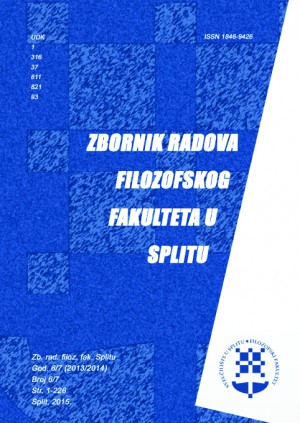APSOLUTNI GERUND U TALIJANSKOM JEZIKU: BOCCACCIO – DRAGO – MANZONI
THE ABSOLUTE GERUND IN THE ITALIAN LANGUAGE: BOCCACCIO – DRAGO – MANZONI
Author(s): Maja BezićSubject(s): Language studies, Theoretical Linguistics
Published by: Filozofski fakultet, Sveučilište u Splitu
Keywords: absolute gerund; Boccaccio; implicit subordinate clauses; Manzoni; old Italian; Vincenzo Drago;
Summary/Abstract: This article studies the ways in which the absolute gerund is used in forming different types of implicit subordinate clauses in the work Storia dell’antica Grecia written in Italian by Vincenzo Drago (1770–1836). Drago was a Dalmatian author born in Kotor, a student in Padua and a supporter of Antonio Cesari’s purism. The absolute gerund is an implicit verb form with its own subject, typically used by Giovanni Boccaccio and by authors using archaic language and those imitating the language of the Tuscan Trecento. The 18th and 19th centuries saw gradual reduction in its usage, very well exemplified by Manzoni’s novel I promessi sposi (1840). Taking into consideration papers studying the ways in which this verb form was used by Boccaccio and Manzoni, our goal is to examine if the author, who tended to simplify multilateral complex sentences typical of Boccaccio, also tended to simplify this segment of his syntax.
Journal: Zbornik radova Filozofskog fakulteta u Splitu
- Issue Year: 2011
- Issue No: 4
- Page Range: 67-76
- Page Count: 10
- Language: Croatian

